Master of your own destiny
So you want to build a website for your small business? Is it even a good idea? Well the next few articles go through exactly what you need to know and how to do it.
A website in 2024 might seem an antiquated idea. I mean, what is it? 1998? Isn’t social media the way to go forward now? With TikTok and Facebook garnishing the majority of the views.
Well my answer to this question every single time is this: It’s absolutely important to have a website for your small business, and there are a number of reasons. Some of them I go over in this article, but here’s a basic rundown:
- You control the content of your website, what everyone sees, and how you tell your story.
- You can take the visitor on a journey and turn them into a lead or sell them something on your ecommerce site.
- You have full access to the analytics of the site. What page they usually exit on, how long they are there, and of course what pages are the most popular.
- It develops trust for your potential client (you aren’t just a Facebook fraud)
- and most importantly, people visiting your website are there to find out more about your product, it’s not thrown in with all their other social feed. The visitor has a different intent when visiting.
These are only a few reasons why it’s super important to have a website for your small business and there are many more, but let’s not preach to the choir, let’s get started.
What do I need to build my website?
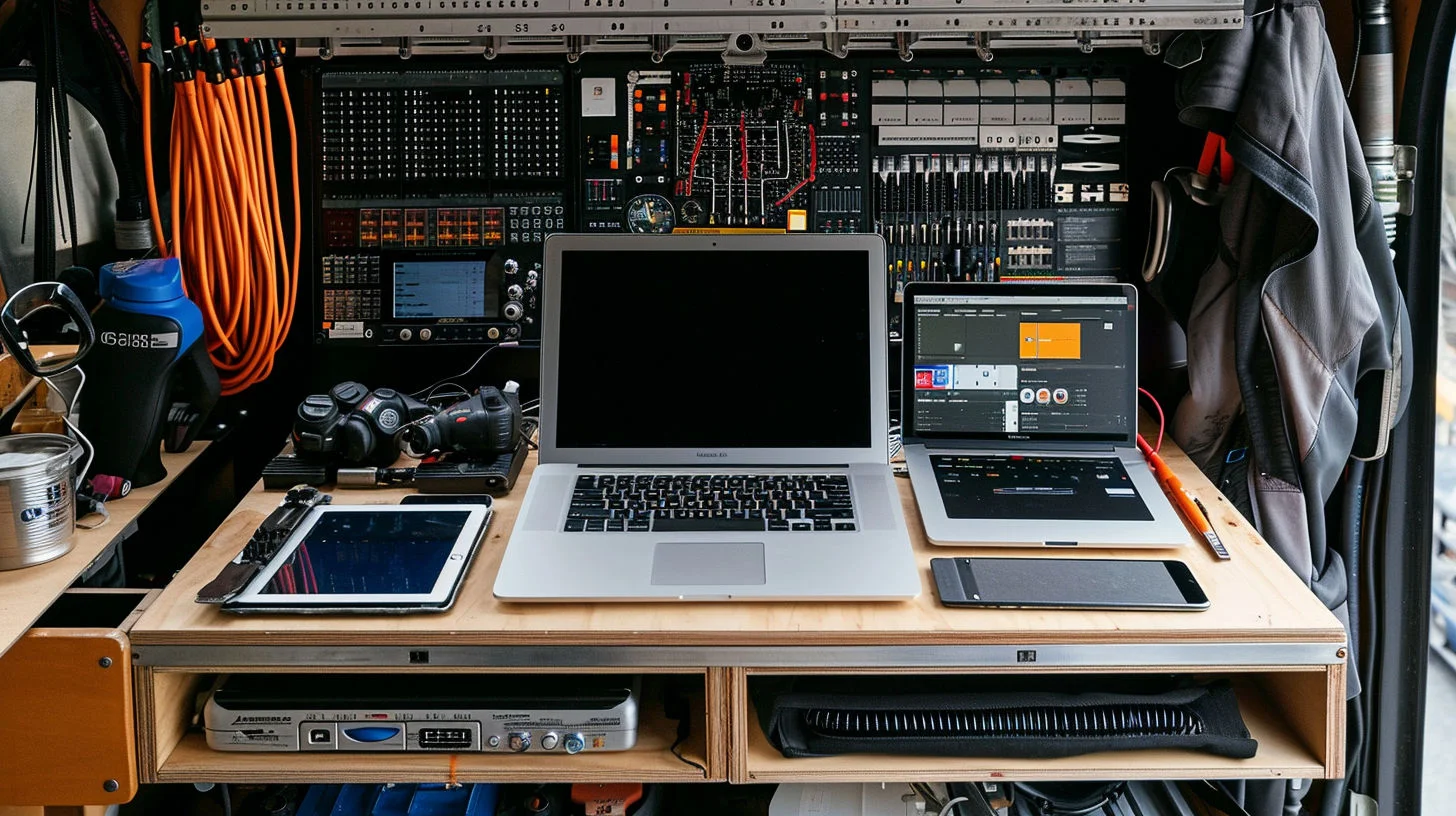
The great thing about a website is that you don’t really need anything more than a laptop or a computer to get started.
Here is a list of the components of a website that you will need to get started:
Domain Name
This is always the first thing I make sure a business owner purchase. But what is a domain name you are probably asking?
A domain is what your customers can type into their browser to find your website. Ours for example is digitalden.com.au. There are many variants such as digitalden.com or digitalden.net.au, but you will have to purchase these separately if I want them all. It’s usually not necessary except for large multinationals, so don’t stress too much about the other names.
Note: I’ve heard horror stories about owners starting their business without a domain, only to have it stolen under their noses by some overseas scam artists, only to have to purchase their domain at an inflated price. Don’t do that.
Be secure and safe and purchase your domain name as the first thing on your list.
You can purchase a domain name from a domain registrar. Some of the registrar’s I’ve used are:
A domain name will usually set you back around $25-30 for 12 months. Yep that’s right, you don’t own your domain, you simply lease it. Providing you keep paying it each year you won’t lose it though, so don’t stress.
Website Hosting

You’ve got your domain, now it’s time to find a place to “host” your website. You can think of hosting as renting a home, but more affordable in 2024.
Hosting can be cheap or expensive, depending on the type you purchase. For a basic website you could get some shared hosting a standard 5 page site to keep the costs down. You can expect to pay $15 per month for something like this.
Keep in mind that you need to be in charge or maintaining the site, the server space, security and backups.
Shared hosting simply means you have one server (computer) that you share with lots of other websites. Not only does this keep the price down, but depending on the other sites that are on the server, can also keep the speed down as well. Something to watch out for.
Some good hosts that I use are:
Choose Your Website Platform

So that’s the easy stuff out of the way. Believe it or not.
Now we move onto the biggest question you will probably face when building your own website in 2024.
Which platform to pick.
It’s as old as Mac vs PC, as relevant as Android vs iOS and users get as passionate about their web platform as all of these people.
The interesting point is they all kind of do the same thing. The all do it differently, just like a BMW drives differently to a Toyota, but they still do the basic job.
Let’s look at some of the options out there.
WordPress
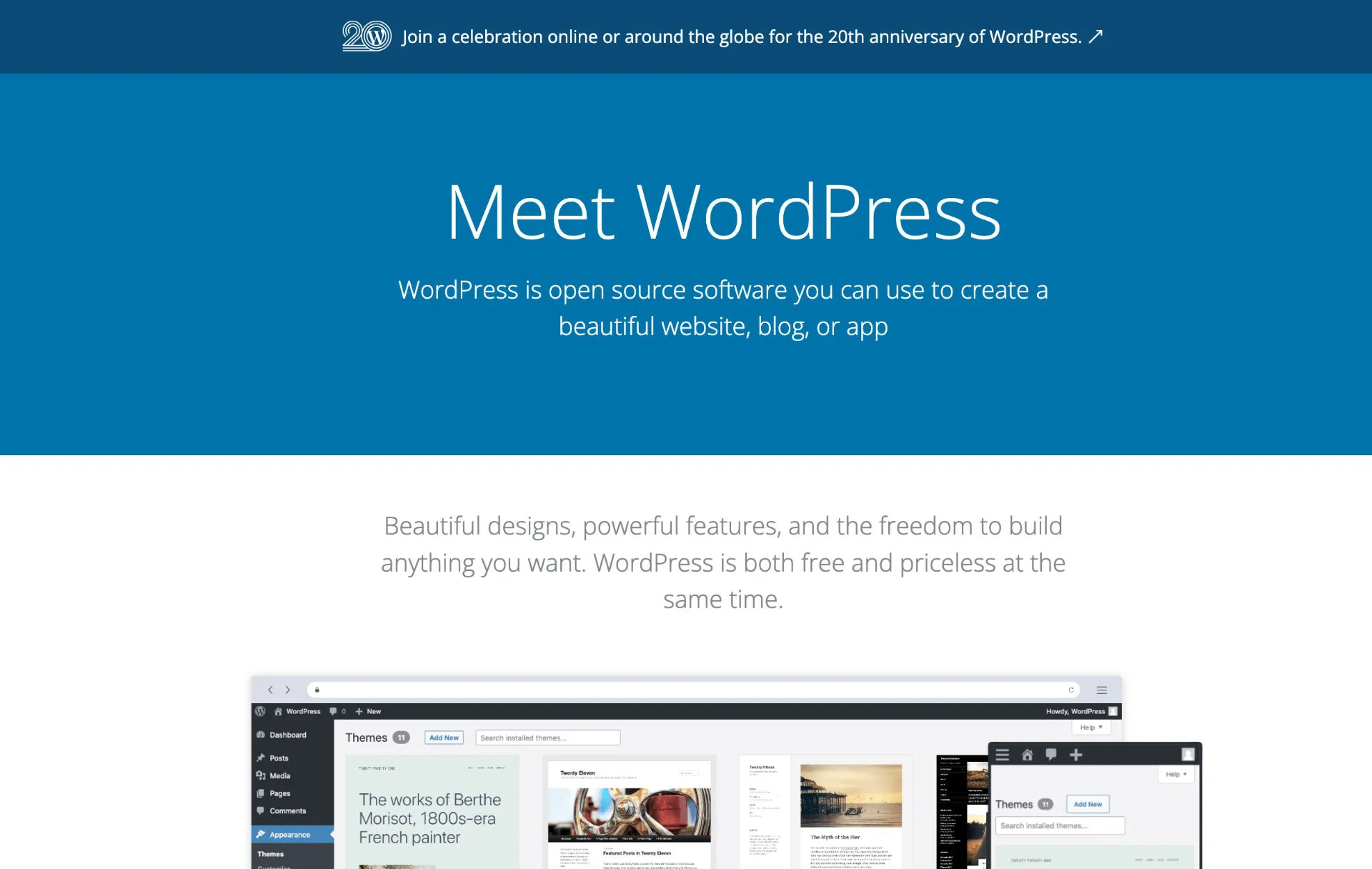
This is the grandaddy of them all. WordPress makes up around 40% of the internet and has become (with good reason) synonymous with building a website to most people that dip their toes into the water.
Most people love it because it’s free. Which is a pretty good price to pay for a complete website. You can install it for free, find thousands of themes (think designs) for free and get up and running in minutes.
A side note – there are two versions of WordPress. There is “Wordpress” and “Wordpress.com” the .com version includes hosting and it costs per month to use it, the sans .com one is completely free.
- You can get started with WordPress here.
- You can get started with WordPress.com here.
Wix
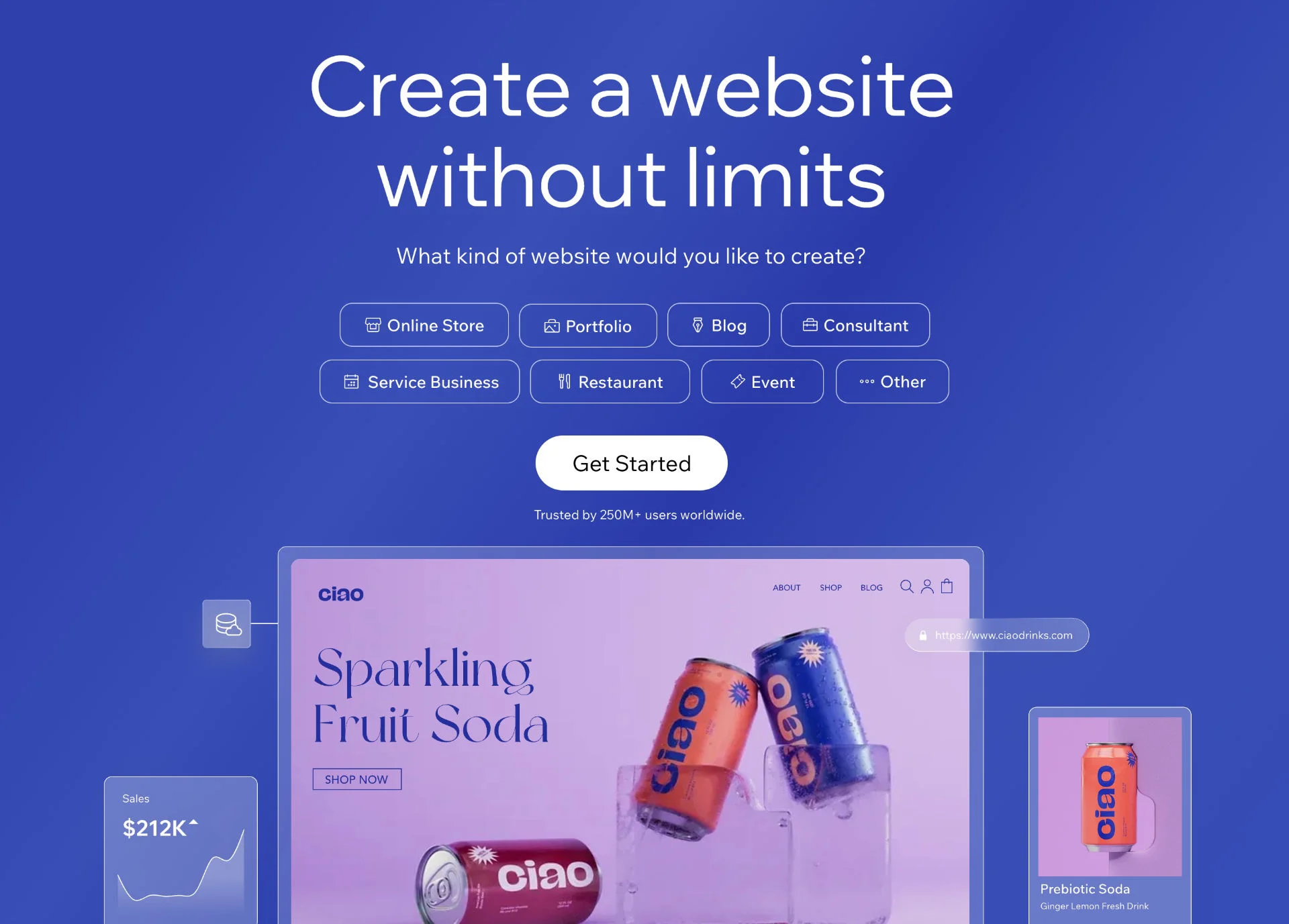
Ah Wix. The person with no design sense’s dream. Never have so many random colours been accessible in web development to so many businesses.
Similar to WordPress, a Wix site is something that a real developer will scoff at, and a small business owner will marvel at. “Let’s make the text Comic Sans…it’s fun and whacky!”
There is nothing inherently wrong with a Wix site, and I know many business owners that do very well for themselves through a Wix site, I’m just being cute.
What they can do is help you get the look you want on your site quickly (well relatively quickly) and they handle the hosting, the backups and the security all for you.
It does cost money for this. You’ll be paying $15 a month on the starter plan.
One caveat you should know, with any hosting service like this, you will be paying whatever they decide per month, and if they increase pricing you can export your site to html, but you can’t keep using Wix.
It’s not my recommendation, but it can certainly work for you if you want to give it a try.
- You can get started with Wix here.
Webflow
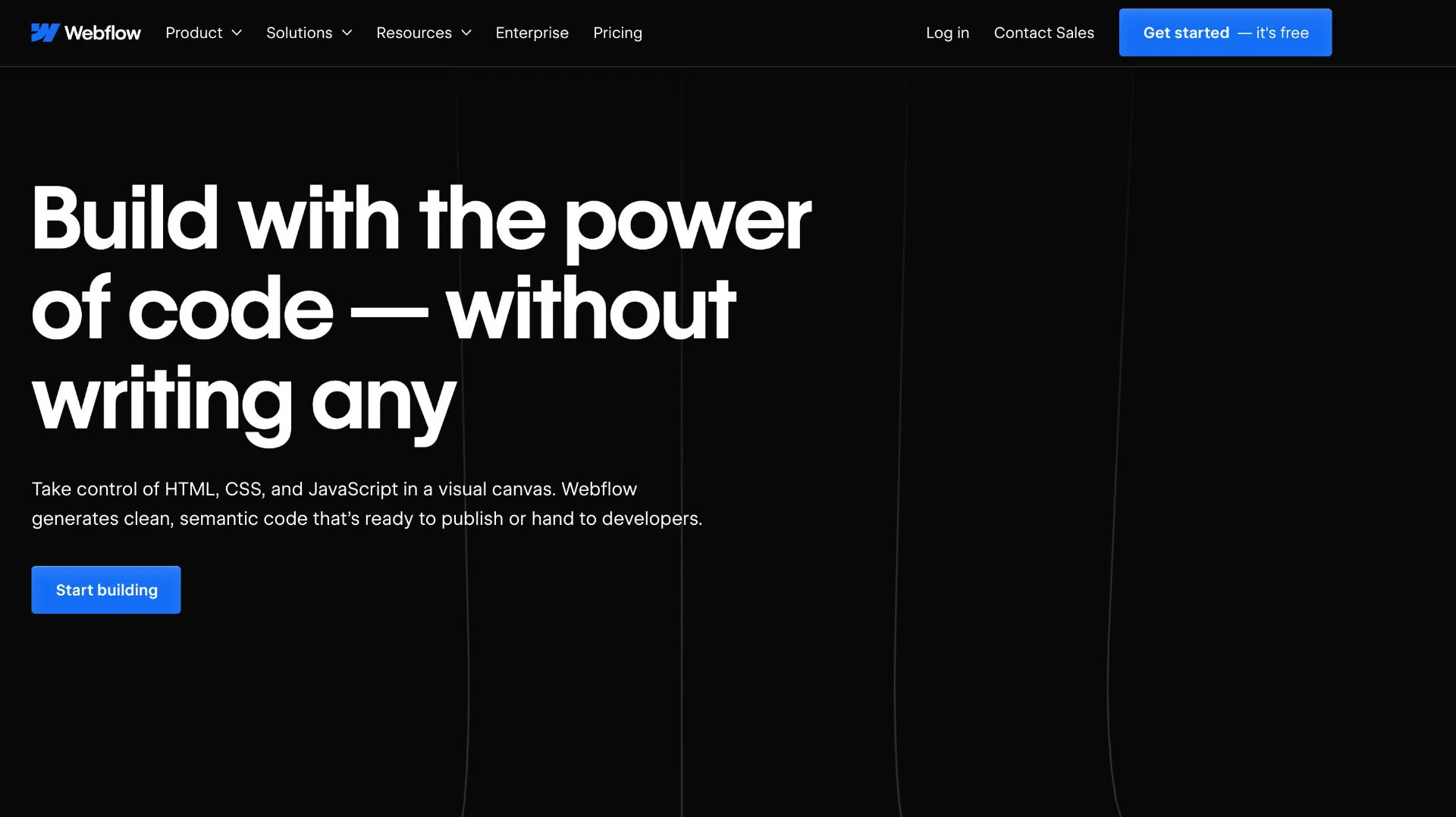
Think of Webflow as a fancy version of Wix.
It’s completely hosting by Webflow, and you use their intuitive builder to start your new site you really can’t go wrong.
They have one of the best builders in the game, and you can really achieve some beautiful looking designs on there, provided you know what you are doing.
There is plenty of help articles and videos to guide you through and I can recommend it, if you want something that will scale with your knowledge.
The one thing to be aware of is their pricing. They can come in a little expensive at $40 a month, but you get plenty of upgrades for that cost.
- You can get started with Webflow here.
Shopify
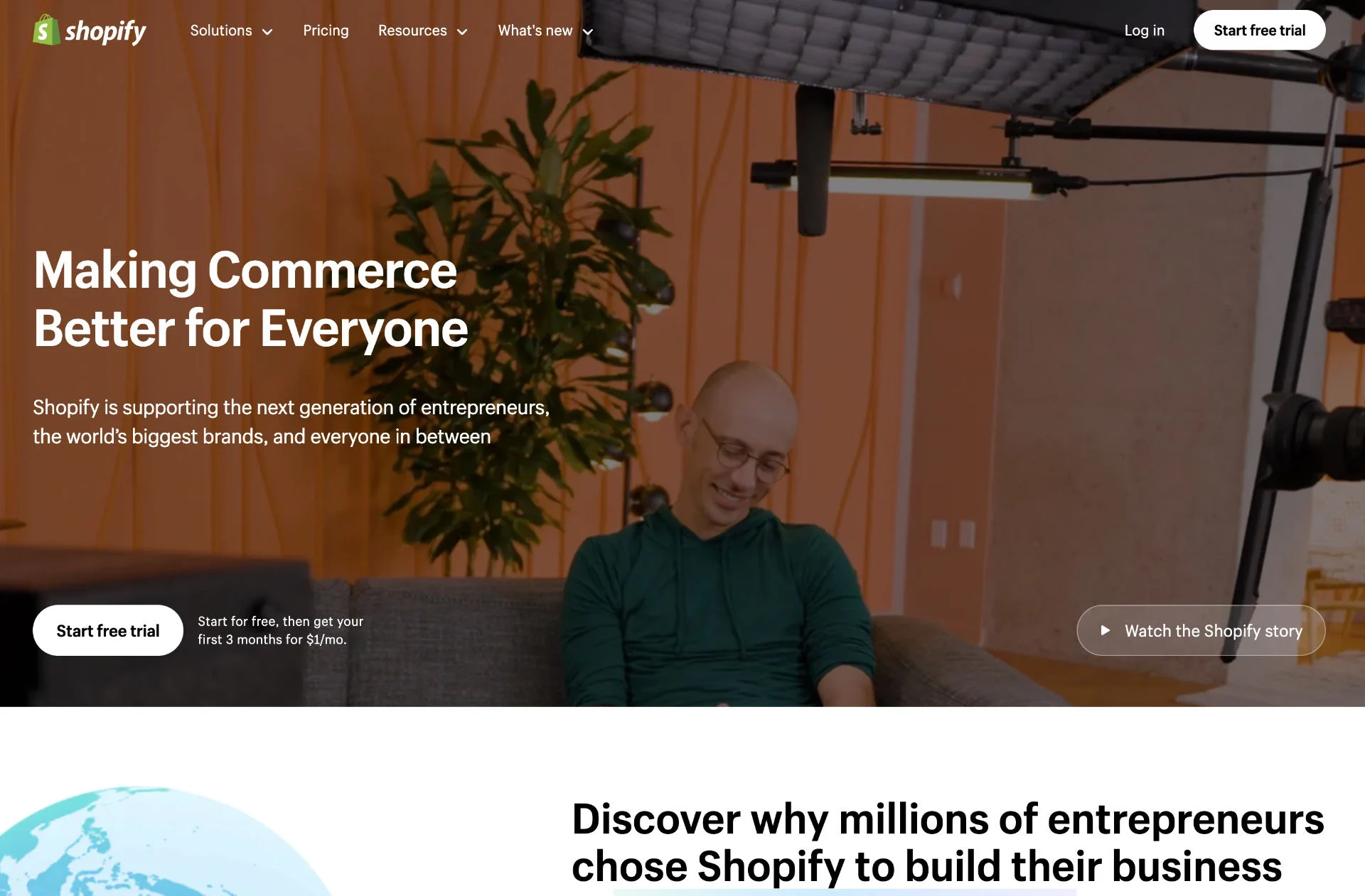
All the above sites are great for standard informational sites, but aren’t as good when it comes to ecommerce.
The leader of them all by far is Shopify. You certainly heard of it, even if you accidentally called it Spotify like I do all the time.
Shopify is built for ecommerce, and like the others comes with themes that can be installed for free, or premium themes that can be purchased and installed.
You can create pages, and and remove products and they have a substantial plugin library that expands the functionality of your site even further.
Like some of the others in this list the hosting is all covered by Shopify, so if they decide to hike up their prices (like everyone else at the moment) then you are left to just go along with it and smile.
The tricky payment processing and shipping is also expertly handled with Shopify so it takes the headache out of all that drama for you.
Definitely recommend to take a look if you are an ecomm business.
- You can get started with Shopify here.
Squarespace
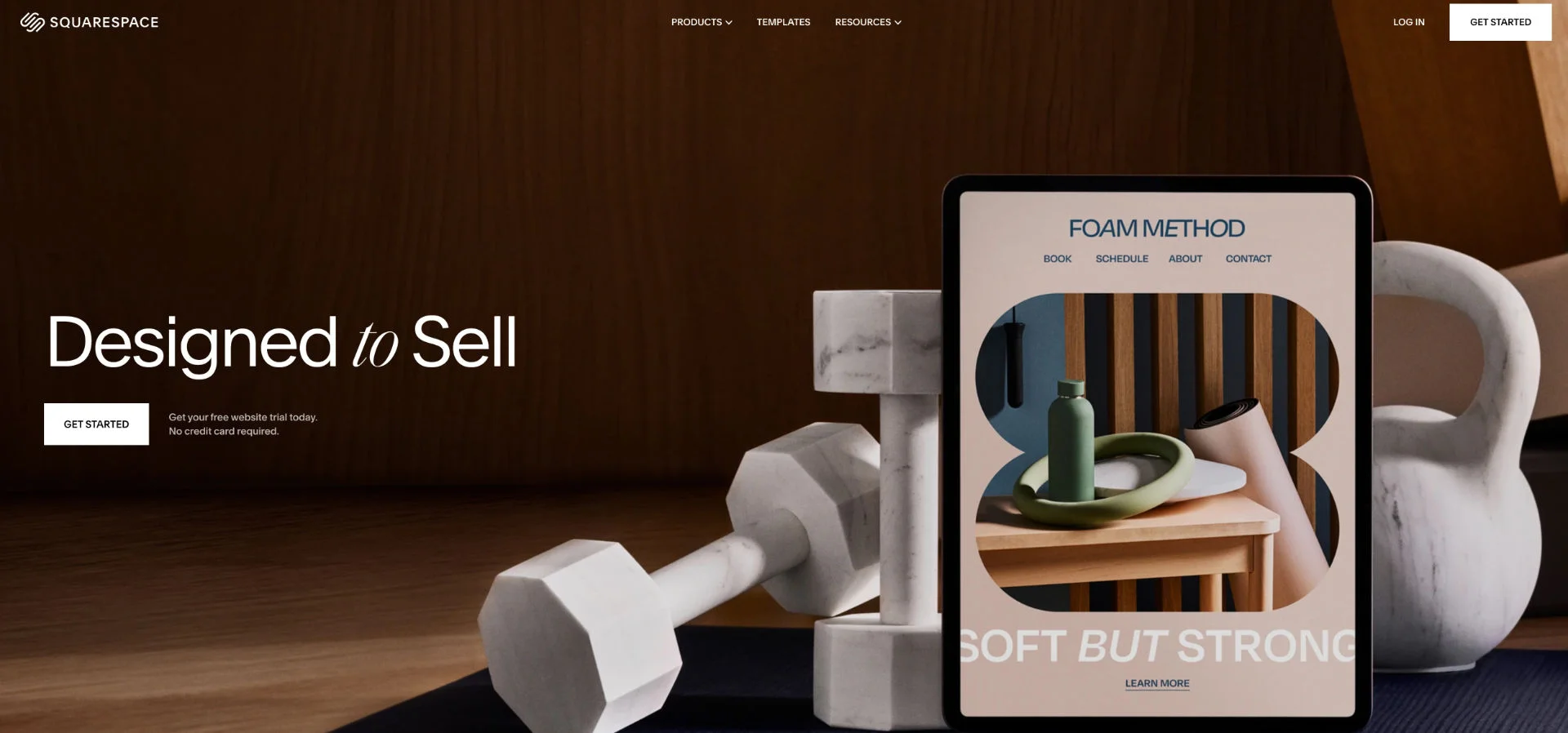
Square space is in a similar group as most of these sites, but with a distinct difference. Most of their templates look pretty like a professional did them.
That’s good news, especially if you are a double denim kind of person.
I would recommend a Squarespace site for a more visual site. Think photographers, artists, or those that sell services that are visual.
Their sites look great and start with a monthly cost of $16 which is pretty decent. You can also get started building your site for free to see if you like it. That’s tops.
- You can get started with Squarespace here.
Coming Next – We look at Page Builders
That should give you enough information to get you researching the different platforms and pricing.
In our next article we will take a look at page builders specifically in WordPress. So stay tuned for that.
Any questions at all, please don’t hesitate to ask me below!
What website platform are you with or do you want to move to?


